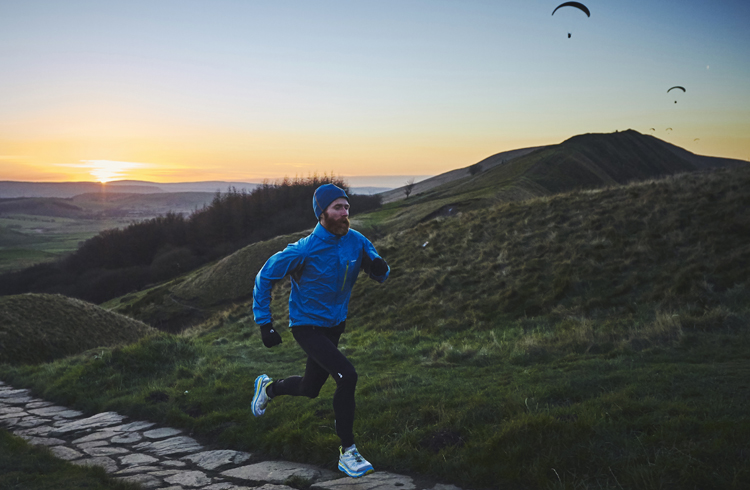
Picture courtesy of www.laurence-ce.com
We’re no good at road running
Sad fact: us Brits are not especially good at road marathons. Truth be told, we’re the second slowest nation in Europe. Last year, UK men’s average finishing time was 4hr 13min 23sec, while women’s was 4hrs 42min 33sec. Only Greece is slower. What Brits seem to be good at is raising money for charity and dressing up. Both admirable skills, but the fact remains: we’re rubbish on the road.
The trails are more relaxing
If small is beautiful, you are on to a loser with a city marathon, as small scale simply doesn’t exist. Big city marathons now routinely attract 20,000 runners and more than 100,000 spectators. Yes, that lends them a certain grandeur, but it also makes them overwhelming. The trails, by contrast, are remote, relaxing and far less congested. I know where I’d rather be.
The trails are better looking
Without wanting to name names, there are many major British conurbations that are not renowned for their scenery. Yet running a road marathon seems to provide everyone with rose-tinted spectacles, through which grey asphalt and 1970s architecture become things of rare beauty. I know a regular marathon runner who described the Amsterdam Marathon as “like running round a supermarket car park”, yet she’s run the race three times. Deny yourself no longer: head to the hills for some proper scenery.
Road running is brutal on the body
If you compare the recovery time for a road marathon with that of an off-road marathon, the difference is startling. While you may be a bit sore for a few days after a trail marathon, the chances are you’d be ready for another within a month. Road marathoners, by contrast, are lucky if they can fit in two a year.
The reason for this is well documented: the impact and stress on the joints is considerably greater on road than it is on trail.
The trails offer freedom
I am not belittling people who run road marathons; Paula Ratcliffe and Charlie Spedding are among my all-time athletic heroes. For me, though, it’s not the most nourishing form of running.
Part of the problem is that data monitoring – beloved of road marathoners the world over – has allowed us all to become amateur analysts obsessed with statistics.
Running should be an art, as well as a science. Practising dumb, repetitive movements on hard surfaces may be a form of training. But it is not a skill. You need to engage your body to complete a trail marathon, which means your core, agility and even upper-body strength get worked.
3 must-try trail races
Hardmoors 26.2, 22 May
A picturesque and hilly pleasure in Osomotherley, North Yorkshire
The Purbeck Marathon, 18 September
Taking in the Dorset coast, this is billed as “one of the world’s most scenic marathons”.
Something Wild Trail Marathon, 12 July
Set in the stunning Dartmoor National Park, this is a trail runner’s delight
Ceri Rees is an ex-international athlete and trail running expert. He is the founder of Wild Running, offering trail running and mountaineering experiences for all abilities.






